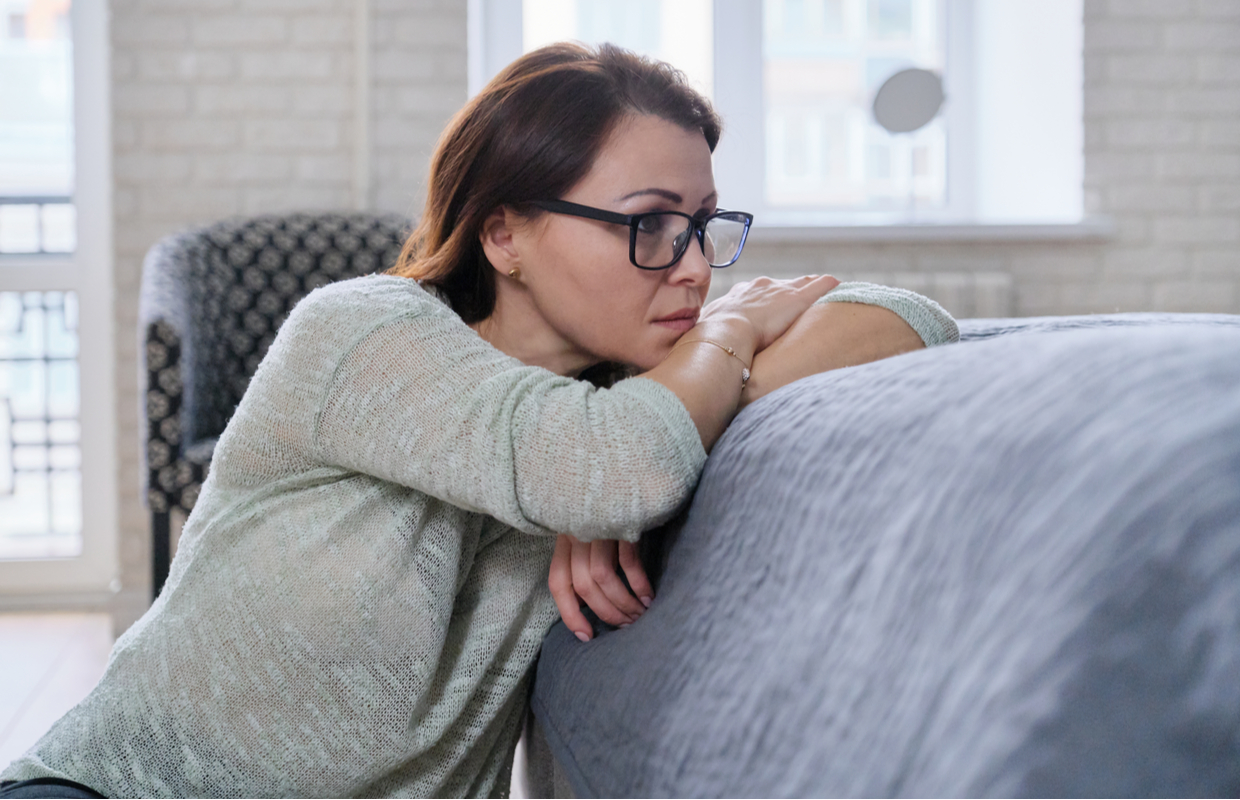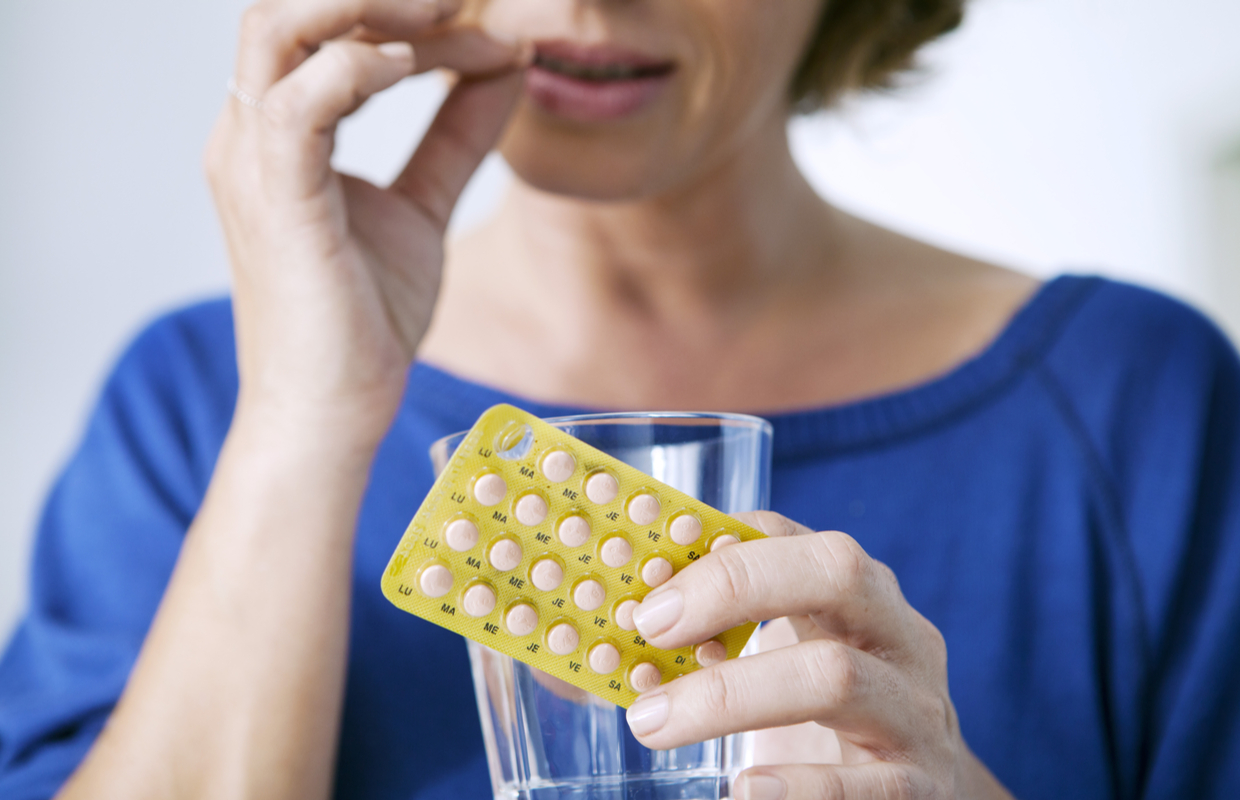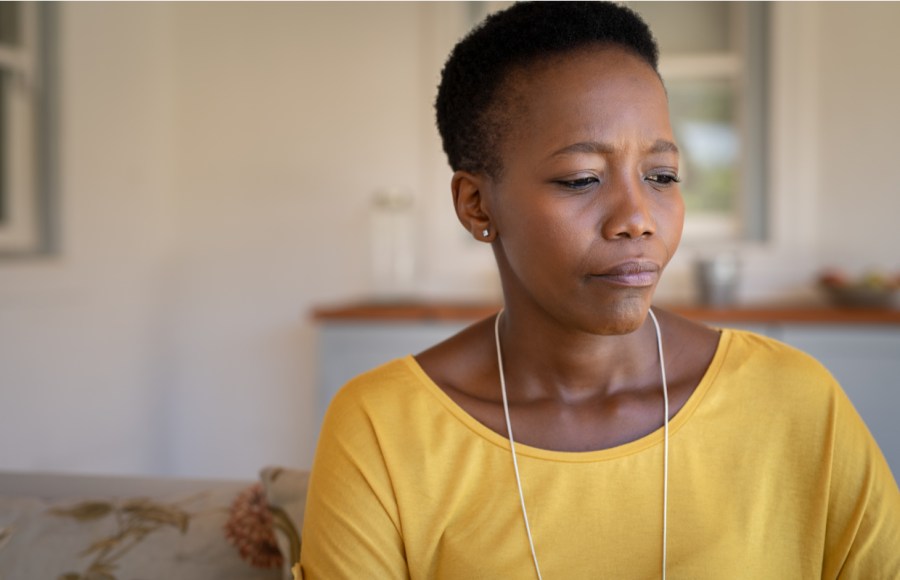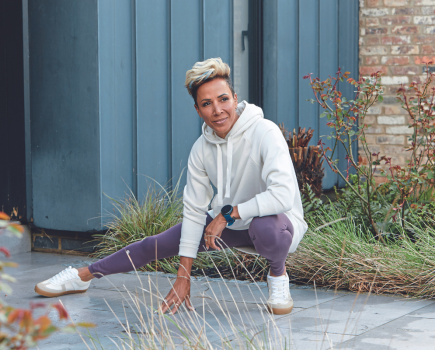Struggling with mood dips? Your hormones could be to blame. We chat to the experts to find out which hormones could be responsible for your changing moods, plus some top tips on balancing your hormones and regaining control over your mood…
Whether it’s an autumnal mood slump, the January blues, or constantly feeling like you’re on a rollercoaster of emotions with your moods, you’re not alone.
According to experts, more and more people are reportedly suffering with mood dips than ever before and it’s not surprising after the few years we’ve had.
However what you might be surprised to know is that many of our mood dips are related to our hormones, and could actually be a sign that our hormones are out of balance, according to cosmetic doctor and hormone expert, Dr Martin Kinsella.
‘Mood swings can occur when serotonin levels change rapidly, either rising or falling,’ explains Dr Martin Kinsella. ‘Oestrogen and progesterone control the levels of serotonin production. High levels of oestrogen can impact our mood. This can result in what is known as the roller coaster of emotions that women can experience during both their menstruation cycle and when they reach menopause.’

What causes hormone changes during perimenopause and menopause?
The perimenopause and menopause are a natural part of the ageing process and are caused by a change in the balance of the body’s sex hormones.
‘When your ovaries stop producing as much oestrogen and stop releasing an egg each month then the menopause occurs,’ explains Dr Martin Kinsella. ‘Although everyone is different it usually occurs in the late 40s to 50s, however premature or early menopause can occur at any age.’
Do the seasons affect our hormones and mood?
For many people, however, mood changes occur outside of menopause and menstruation. It turns out that the seasons could be to blame.
‘Our hormone levels can also change seasonally and studies suggest that thyroid function changes seasonally,’ explains Dr Martin Kinsella. ‘This could be the body’s way of trying to compensate for the cold by increasing hormone levels to generate more heat.’
‘In the autumn and in January, I see a surge in people who are suffering from a hormone imbalance. However, to be honest, I am seeing more and more people who suffering from mood slumps throughout the year.
‘I would advise anyone suffering from a mood dip to get their hormone levels tested in order to rule out a hormone imbalance, as this can play a huge impact on mood. If a hormone imbalance is discovered, then there are a number of treatments available that can re-balance hormones. These can improve mood and energy levels as a result.’

Are there any treatments to re-balance hormones?
‘Hormone Replacement Therapy and Bioidentical Hormone Replacement Therapy are both effective ways to re-balance hormones and improve mood,’ explains Dr Martin Kinsella.
‘It’s advisable to initially consult your GP to get blood tests to establish if a hormone imbalance is to blame. Following this, suitable treatment can then be prescribed.’
4 ways to reduce hormone-related mood dips:
Get more sleep
Sleep affects the levels of a number of hormones, including leptin and ghrelin which control feeling of hunger and fullness. Leptin gives your brain the message that you’ve eaten enough. However, without adequate sleep, your brain reduces leptin and ghrelin which then stimulates appetite.
A lack of sleep has also been linked to the hormones that affect stress. This means your mood can dip and you can feel more stressed if you’re not getting enough sleep.
Look at your diet:
Certain foods or too much of certain foods (like processed and sugary foods) can affect hormones, resulting in mood dips. Eating a healthy balanced diet is key to maintaining hormone balance and can help prevent mood dips.
Stop overexercising:
It goes without saying that exercise is in general good for helping to keep us healthy. However, if we exercise too much it can affect our hormones. In particular, it can cause low progesterone, the hormone that calms and soothes us. Therefore, if progesterone is low, it can result in low moods too. Over exercise can also cause low oestrogen which can also negatively impact mood.
Cut back on alcohol:
Alcohol can affect blood sugar levels and interfere with our natural hormone balance, negatively impacting mood. For this reason, many people experience a mood dip the day after having too much alcohol. It’s all about moderation.







